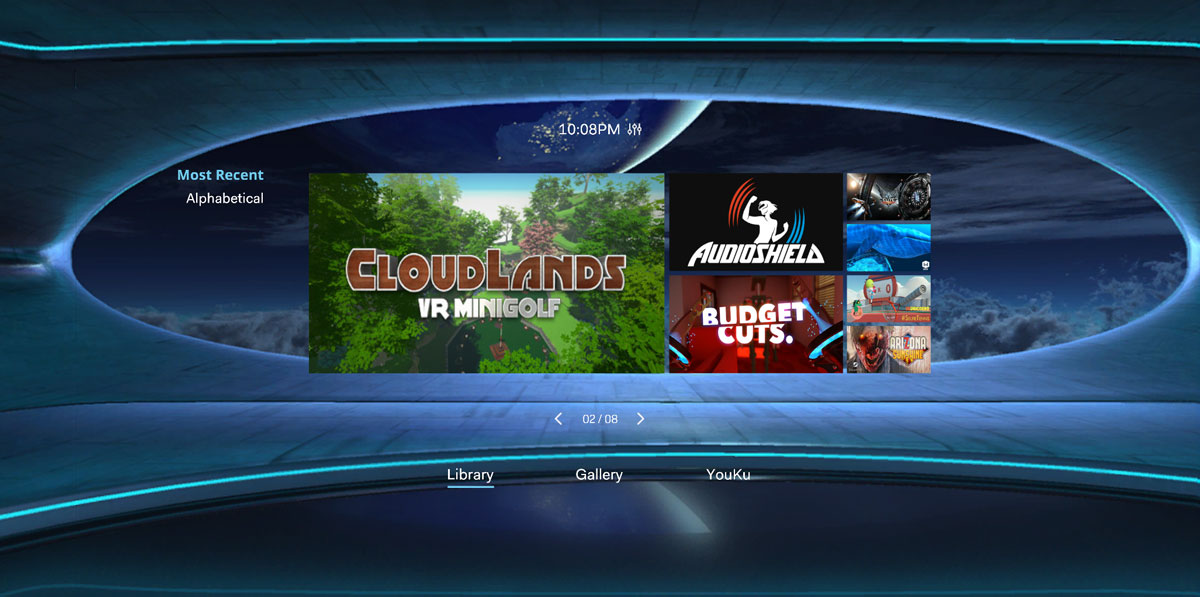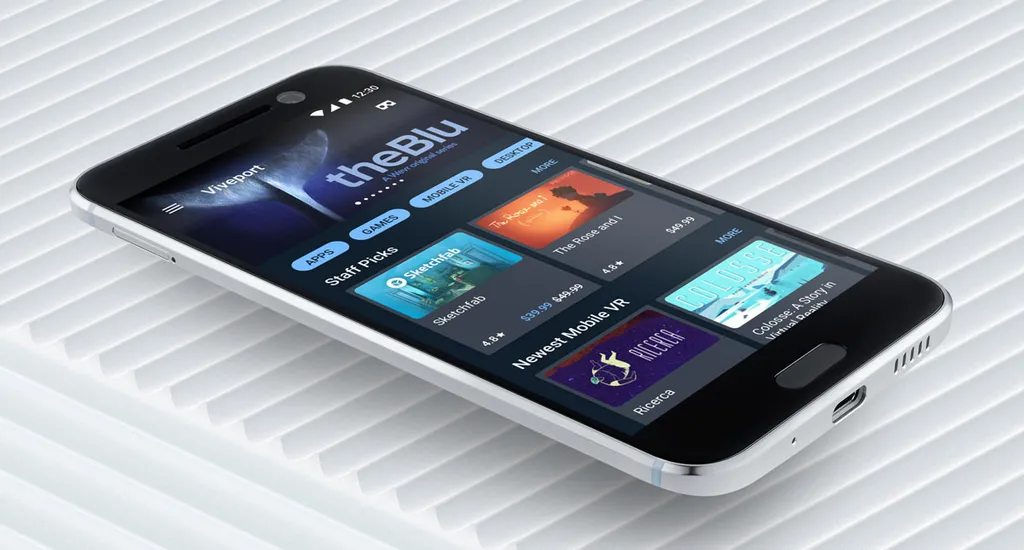HTC held joint developer forum at Alibaba’s Cloud computing conference this weekend in China and had a number of big things to say about what their plans are to help grow the VR ecosystem, including becoming a “publisher” for VR content to experience centers as well as launching a beta of their Viveport platform for mobile called, Viveport M.
Speaking exclusively with UploadVR, Viveport President and SVP of Virtual Reality Rikard Steiber says Viveport M aims to “help western developers and Asian developers to bring quality mobile VR experiences to the Chinese market.”
Steiber says that HTC’s vision with Viveport M is to be “platform and device agnostic” but that the app will initially work within the Android ecosystem. Viveport M fills a hole in China, where the likes Google’s Play Store (and upcoming Daydream platform) and Samsung’s Gear VR store have struggled due to restrictions from the government on apps and websites from countries outside of China.

Mobile VR has already been taking off in a major way in China, which ranks as the largest smartphone market in the world. We’ve heard enormous figures suggested in Chinese investment circles for the size of the VR market there, with sources suggesting headset shipments there far exceed the United States. As Steiber tells us, “VR is very big there… it is [HTC’s] priority to help developers tap into that market.”
Somewhat similar to Google, HTC intends to provide consumers and developers with “guidelines” as to what specific smartphone hardware is required for a good VR experiences – though the aim is for it to reach as many phones as possible. HTC declined to comment whether they would be creating their own mobile VR hardware to go alongside the platform.
HTC will look to expand the reach of the platform alongside their “partner,” Alibaba. According to Steiber, HTC is “looking to work with [Alibaba] to get more content” on the Viveport store, as well as on a few other projects he could not provide specifics on at this time. Youku, the Chinese equivalent to YouTube which is owned by Alibaba Group, can be seen as a main option within the Viveport M user interface.
“It is more about tapping into [Alibaba’s] developer community and getting them very engaged in VR,” he says.
This is not the only partnership HTC has struck with Alibaba, whose founder Jack Ma opened the developer conference. Earlier this year we reported that HTC has partnered with Alibaba Cloud to help with streaming VR content. It would appear that this is a further extension of that partnership, allowing HTC to better deliver Mobile VR content through Viveport M. Alibaba themselves are also working on a VR eCommerce platform, dubbed Buy+. They showed off a concept earlier this year and announced this weekend a VR payment system where a user pays by nodding their head.
Currently, HTC plans to launch Viveport M only in the Chinese market and declined to comment on any plans for expansion into international markets.
“Thousands” of VR Arcades by the end of 2017
In addition to Viveport M, HTC also announced that they will allow developers the opportunity to “opt in to have HTC be your publisher in the arcade market” with Viveport Arcades.
“The arcade market is a great monetization opportunity for developers,” Steiber says, “the [arcade] model is showing great promise in terms of penetration.” HTC intends to launch Viveport Arcades in “hundreds of locations” in the asian market by the end of the year with “a couple thousand” to come by the end of 2017. Most of these will be activations within preexisting locations such as arcades, internet cafes, and karaoke bars but HTC is also building a “reference design” store in Taipei.
Developers that opt in to the program will receive marketing and distribution help from HTC in exchange for a “50-50 revenue split” with the company, which Steiber says “is the same as Viveport.” The revenue will be calculated on a per minute of playtime basis. HTC says it is still working on the pricing model and will “suggest” one to partner locations.
HTC is looking to help developers navigate the Chinese market, which Steiber notes is “notoriously difficult to break into,” through this program, but the Viveport Arcade has its eyes set globally. “The pilot programs will exist first in China and Taipei,” Steiber says, “but we are in partnership talks with people in the US and Europe as well.”
According to HTC, over 100 developers from the US and China have signed up for the publishing program already and they aren’t all developing exclusively for HTC’s own VR hardware platform, the HTC Vive. The program initially is beginning with the company’s own hardware but Steiber says, “Viveport wants to be a device agnostic platform.”
Developers can opt in for the program at developer.viveport.com.


























